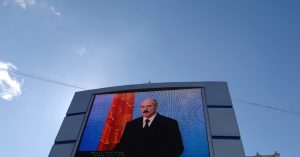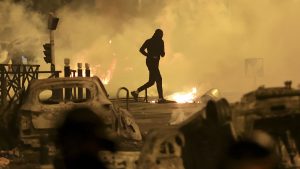
Russia’s Military Bloggers are on a Razor’s Edge
Nationalist bloggers in Ukraine during the first 100 days of the War: Their relationship with the Kremlin and their support of the Defense Minister Shoigu
During the war in Ukraine, Russia’s nationalist bloggers have had a big influence. Known as the voenkory, or military correspondents, they have stepped in to fill the information vacuum left by the government around what’s actually happening on the front lines. Many people have accumulated massive followings, controlling teams of people posting footage of the war. Pro-Russian Ukrainian blogger Yuri Podolyaka’s Telegram channel has 2.8 million followers. Former TV journalist Semyon Pegov, who posts as WarGonzo, has 1.3 million. Rybar, an account run by a former military Arabic translator named Mikhail Zvinchuk, has 1.2 million.
The relationship between the voenkory and the Kremlin has always been rocky. Different nationalist bloggers have different affiliations. Some are aligned to the Kremlin and others are not. There is a group of military veterans who were involved in the annexation of the peninsula of Crimea, represented by figures such as the ex-commanding officer of the Russian-backed rebels who now has hundreds of thousands of Telegram subscribers. But they are all pro-war nationalists, often campaigning for an escalation in violence. Like Wagner chief Prigozhin, who was among the mourners at Tatarsky’s funeral, many have also issued sharp criticisms of how the full-scale invasion of Ukraine has been managed—blaming the incompetence of the military leadership for poor performance on the battlefield. Prigozhin blamed defense minister Shoigu for the death of his troops; Girkin refers to him with the nickname the “cardboard marshal.”
“The reaction across the war blogger community was very, very cautious,” says Eto Buziashvili, a research associate at the Atlantic Council’s Digital Forensic Research Lab. “They were searching for a side to take that would be beneficial for them.”
As the rebellion unfolded, bloggers who had courted Prigozhin while staying close to the Kremlin took the opportunity to reaffirm their loyalty to Putin. Pegov recorded a long video interview with Prigozhin in which he said that theWagner rebellion was a stab in the back.
Some were upset by the change in tone. “I can’t understand those who just a few days ago, were fiercely jacking off on the Wagner PMC and are now suddenly yelling about when, how, and where exactly the traitors should be shot,” longtime Wagner supporter Alexander Pelevin said on Telegram, where he has a modest follower count of 21,000.
This year was the same. The revels went off without a hitch and Mr. Putin took in the show from the yacht of Yuri Kovalchuk, the president’s closest friend and one of the country’s most influential oligarchs. The festival was on June 24, the day that Yevgeny Prigoshin, a leader of theWagner group, launched his rebellion. Despite the surprise of the rebellion, Mr. Putin traveled to St.Petersburg. Nothing, not even armed revolt, would deter him from his favorite party.
Mr. Putin was certainly culpable in allowing the situation to get out of hand. He encouraged Mr. Prigoshyin to take a prominent position on the battlefield and to recruit people from prisons, including POWs, to join him. The calculation was not strictly military. Mr. Prigozhin was clearly elevated to act as a counterweight to the defense minister, Sergei Shoigu, and the military generals, ensuring they didn’t become too popular. So when Mr. Prigozhin started criticizing the military leadership — often in explicit, expletive-ridden diatribes — the president did nothing to stop it.

